Placemaking Postcards is a blog series from the Bass Center for Transformative Placemaking at Brookings where policymakers and practitioners guest-author promising placemaking efforts from across the U.S. and abroad that foster connected, vibrant, and inclusive communities. In line with the principle tenets of placemaking, the goal of the series is to recognize the community as the expert, highlight voices from the field, and to create a community of learning and practice around transformative placemaking.
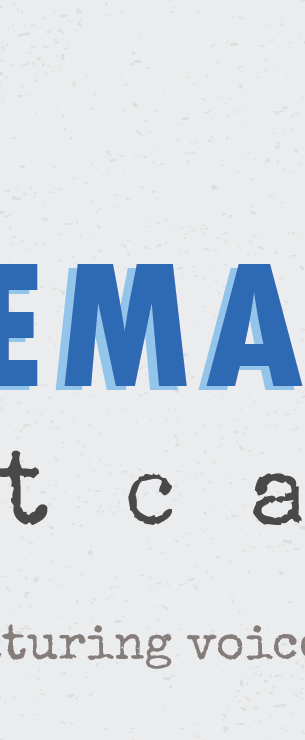 Today’s public health and economic crises have brought long-overdue attention to our nation’s deeply engrained challenges of income inequity, structural racism, and a tattered safety net. Moreover, they reveal how these challenges unfold spatially to concentrate in neighborhoods that have continuously wrestled with economic exclusion, disinvestment, and discrimination—creating an urgent need for place-based solutions that provide relief to the most impacted people in the hardest-hit neighborhoods.
Today’s public health and economic crises have brought long-overdue attention to our nation’s deeply engrained challenges of income inequity, structural racism, and a tattered safety net. Moreover, they reveal how these challenges unfold spatially to concentrate in neighborhoods that have continuously wrestled with economic exclusion, disinvestment, and discrimination—creating an urgent need for place-based solutions that provide relief to the most impacted people in the hardest-hit neighborhoods.
Achieving scalable, place-based solutions in these long-excluded neighborhoods—where government distrust runs deep due to generations of state-sanctioned racism and systemic abandonment—requires intimate knowledge of the community and the ability to deliver tangible results to regain trust. Lessons learned from a coalition we formed in one of Washington, D.C.’s most economically excluded and hardest-hit neighborhoods, Ward 8, can provide a model for other cities to deliver results and ensure that people living in disproportionately impacted neighborhoods have the economic resources they need to withstand the pandemic and achieve long-term economic stability.
From placemaking to place-based cash relief
Ward 8 is home to many of the same challenges that communities of color face across the nation. Approximately 90% of its residents are Black, 31% of its residents live in poverty, it is home to the highest concentration of housing-insecure renters in the District, and residents face significant public health disparities due to disinvestment in medical care and food access east of the Anacostia River.
Prior to the pandemic, a coalition of place-based organizations—including the 11th Street Bridge Park, Bread for the City, Far Southeast Family Strengthening Collaborative, and Martha’s Table—were working to tackle these inequities. The 11th Street Bridge Park began as an equitable placemaking project to connect two District neighborhoods divided by decades of disinvestment and economic, racial, and geographic segregation, before evolving into a multifaceted effort to preserve housing affordability, prevent displacement, build community capacity, and connect residents to jobs. This project helped plant the seeds of community engagement to gain residents’ trust and strengthen the collaboration among community-based organizations needed to address residents’ immediate financial concerns while increasing their economic stability and mobility.
In March, our coalition came together to determine how to continue our goals of supporting economic opportunity for Ward 8 families amid the devastation of the COVID-19 pandemic. Each organization has a long history of supporting Ward 8 residents in different ways, including food distribution, education, violence-prevention services, legal aid, and workforce training. The collaboration we fostered and the trust we built with residents prior to the pandemic gave us confidence that if we worked together, we could leverage our individual resources to make a tangible impact.
The result was a new initiative—THRIVE East of the River—in which we provide up to 500 Ward 8 families with immediate access to $5,500 cash, weekly groceries, and monthly dry goods (cleaning supplies, detergent, diapers, toiletries, etc.) as they await the return of a normally functioning labor market. In addition, the initiative connects participants to trained navigators that help them engage with government resources or track down missing stimulus checks. Participants must meet three criteria: 1) they must live in Ward 8; 2) be low-to-moderate income (50% area median income); and 3) have an existing relationship with one of the four nonprofits, so we could identify and recruit them to participate in the initiative. The four nonprofits have been working with these families for some time, so we have earned trust with them, which has been essential to implementing the program.
THRIVE shares the goals of many “universal basic income” pilots being implemented across the country. For now, however, the initiative is limited to five months, and is designed to address immediate economic instability posed by the COVID-19 crisis. To date, we have secured $3.4 million from local foundations, individuals, and corporations, and are well on our way to reach a $4.1 million goal to serve 500 families. By late August, we had dispersed over $1 million to participating families. If we are able to exceed our fundraising target, we will expand the program to additional Ward 8 participants.
The structural barriers of providing cash relief
THRIVE East of the River strives to be a place-based, racially equitable model for rapid emergency response that communities across the nation can adapt to their own contexts. And although we are only a few months into the program, we have learned some important lessons.
The most important lesson so far has been ensuring that cash transfers to families do not endanger existing government benefits such as Medicaid, Social Security Disability Insurance, or affordable housing subsidies. Many of these government programs have strict asset limits which can be as low as $2,000, which acts as a structural barrier and disincentive for residents to build wealth and achieve economic mobility. To address this issue, our cash disbursements are considered non-taxable gifts, and we connect participants with professional benefits attorneys to identify potential risks and provide counseling. For instance, food assistance programs such as SNAP or WIC can be restarted fairly easily if lost, but Social Security Disability Insurance can be very challenging to restart if kicked out of the program.
We are learning many other lessons along the way, which we will embed into an Urban Institute-led evaluation designed to document the effectiveness of the initiative, provide real-time data to inform ongoing program design and management, and formalize a model that can be replicated by other municipalities. Importantly, we will be training Ward 8 residents to assist with the evaluation as paid researchers, in order to ensure their perspectives are centered in any resulting model.
Trusting residents—and each other—to achieve justice
Early on in developing the THRIVE program, it became clear that each of our organizations must work from the same approach: one rooted in justice and racial equity, and dedicated to increasing the long-term financial stability of Ward 8 families. Over a series of virtual sessions, the directors of each nonprofit came together to create four shared values:
- We value the power of our residents to make their own decisions
- We treat our community with respect
- We will always act with integrity
- We believe in a racially and economically equitable community
These values have been critical to implementing THRIVE. For instance, when thinking about how to best provide funds to families, we took our first value—trusting residents to make their own decision—to mean that participants should be empowered to choose how they receive their relief. They can select to have the $5,500 wired to their bank account upfront or in monthly installments over six months, or they have the choice to receive funds on a prepaid debit card. Importantly, these funds are provided with absolutely no strings attached, as we believe that participating families know best where to allocate the money, whether for rent, food, school supplies, or assisting family members.
Finally, it’s been important to build a trusting partnership between our place-based organizations. For the last several months, we have had weekly virtual meetings to address issues that arise, share successful solutions, and build a sense of camaraderie and shared commitment to uplifting Ward 8 families. These conversations are already leading to new ideas for further collaboration.
By working closely with each other and with the community we are serving, we can ensure that residents don’t just survive this crisis, but thrive.
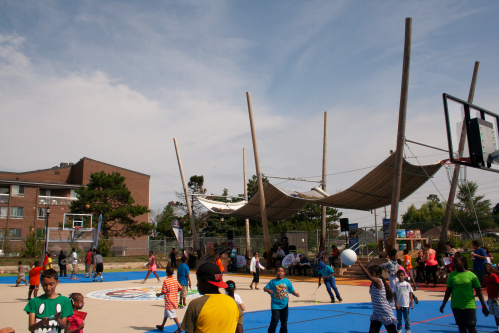
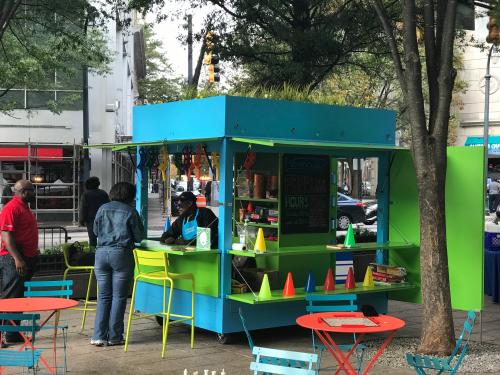
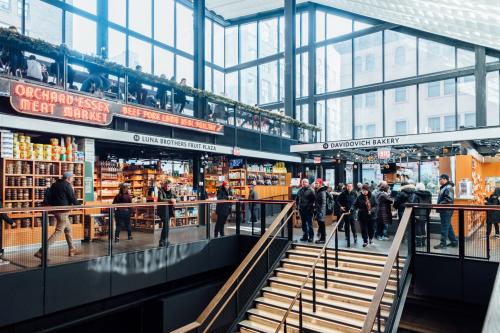

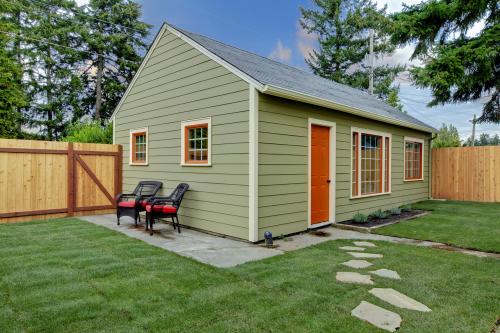
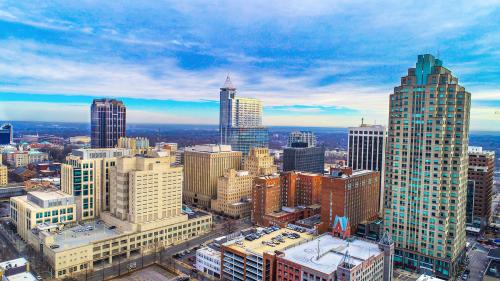
Commentary
How a Washington, DC coalition is using place-based cash relief to advance an equitable COVID-19 recovery
September 29, 2020